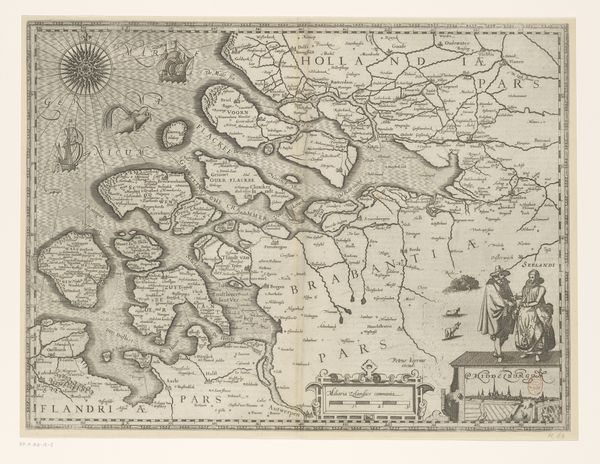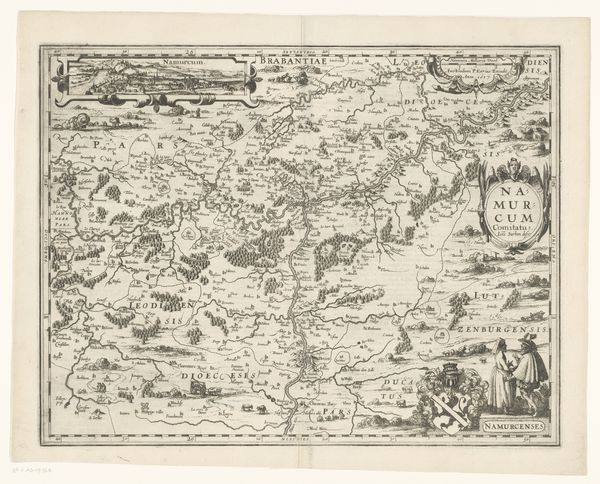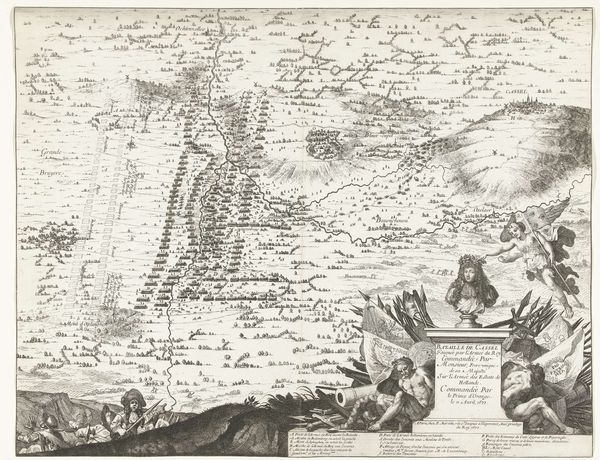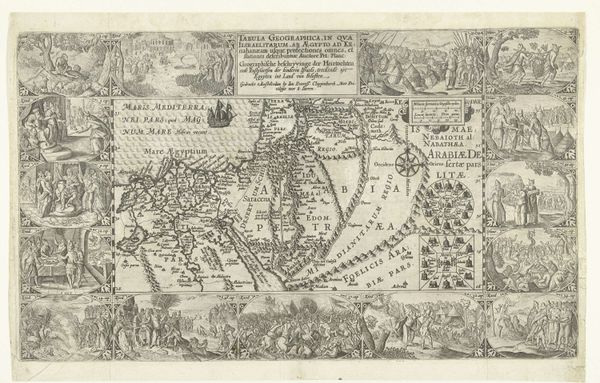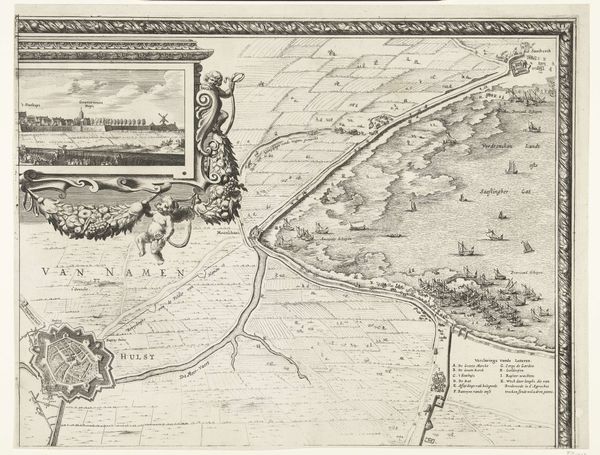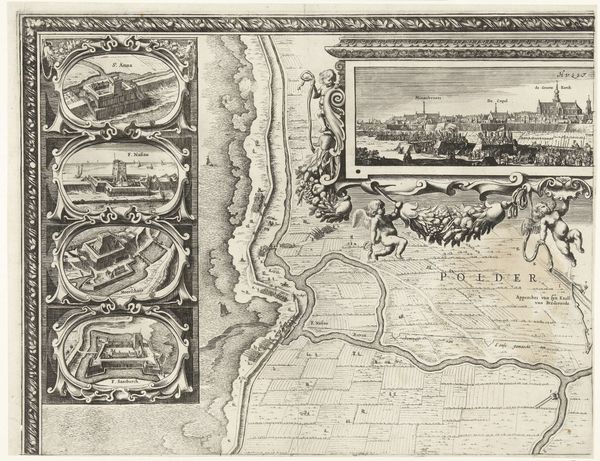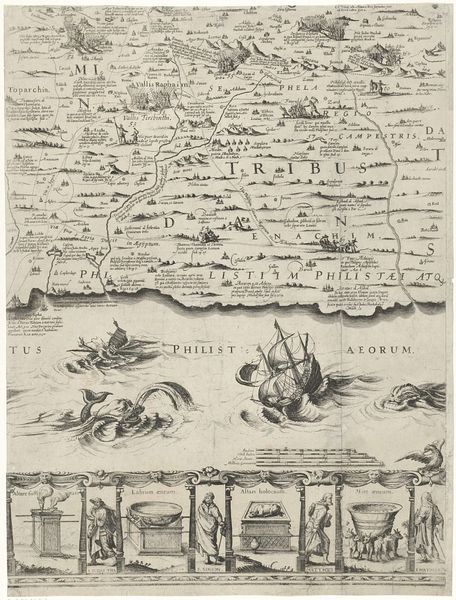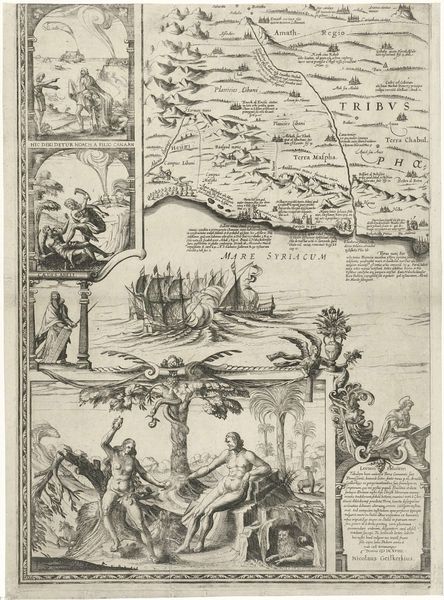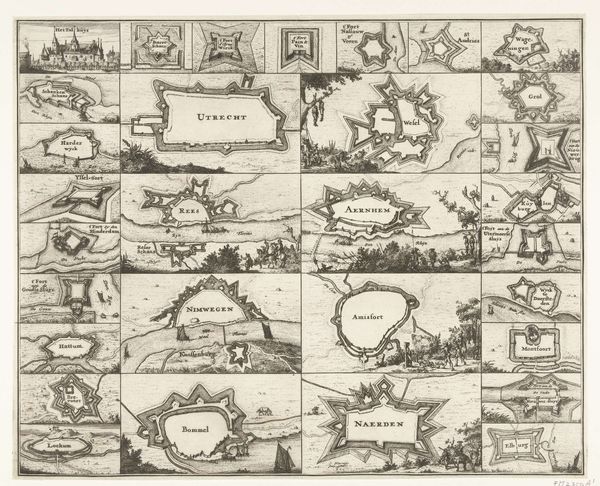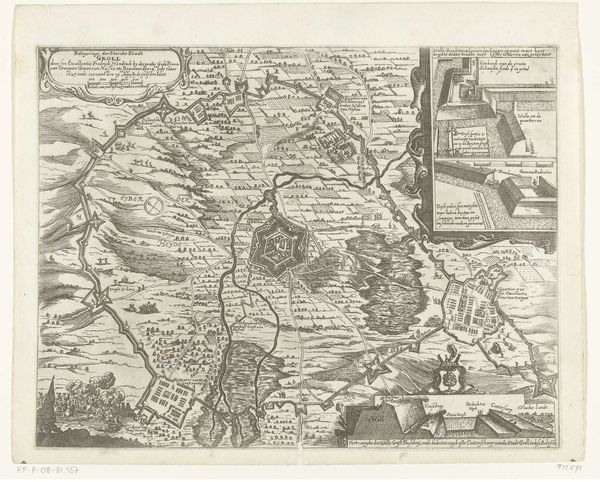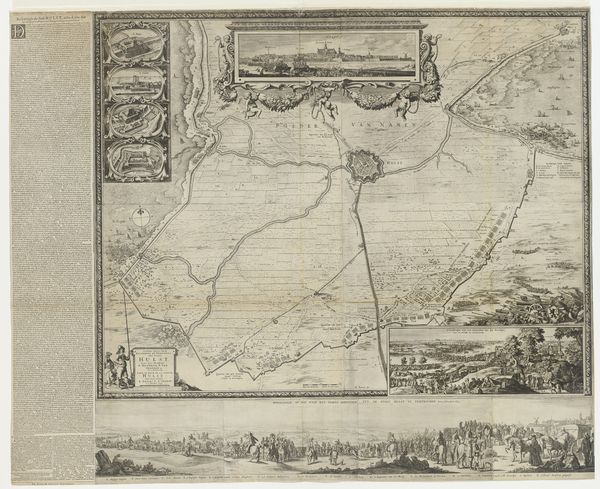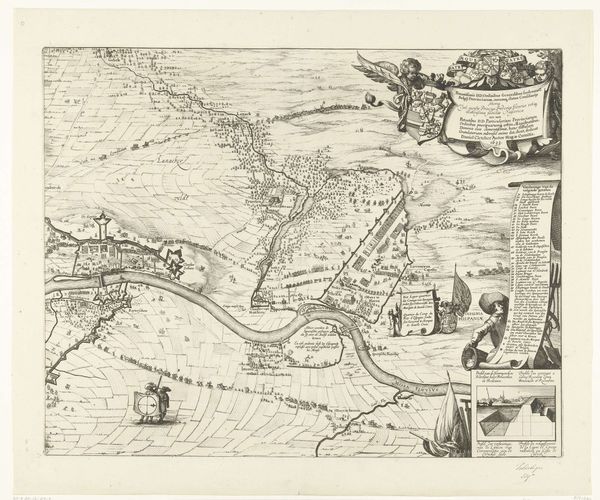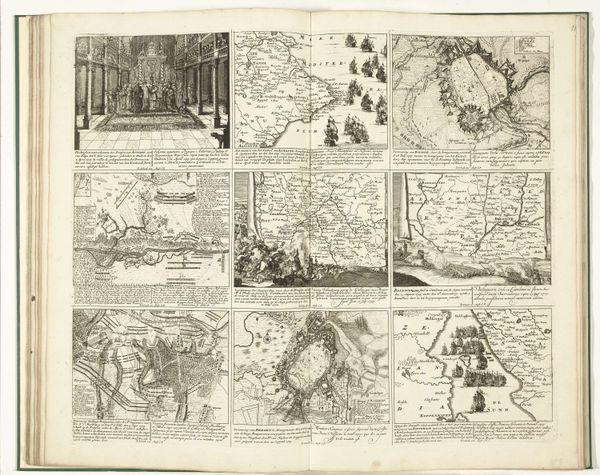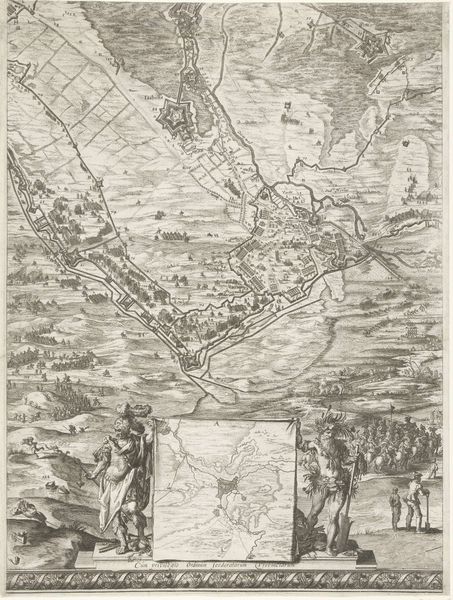
print, engraving
#
dutch-golden-age
# print
#
landscape
#
perspective
#
geometric
#
cityscape
#
history-painting
#
engraving
Dimensions: height 840 mm, width 1066 mm
Copyright: Rijks Museum: Open Domain
Claes Jansz Visscher produced this print of the Siege of Maastricht in 1632. It’s made using the technique of engraving, where lines are cut into a metal plate, which is then inked and printed, leaving a dense network of marks on the page. Think about the sheer labor involved. Every detail, from the fortifications to the troop formations, had to be painstakingly carved by hand. And consider the social context: prints like these were essentially early forms of mass media, used to inform and shape public opinion about political events. The sharp lines and tonal range possible with engraving lent themselves well to detailed, accurate depictions of the siege, but also offered an opportunity to subtly glorify the Dutch efforts. So, next time you look at an early print, remember the incredible skill and effort that went into its making. The materiality and process of production are key to understanding its cultural significance.
Comments
No comments
Be the first to comment and join the conversation on the ultimate creative platform.
